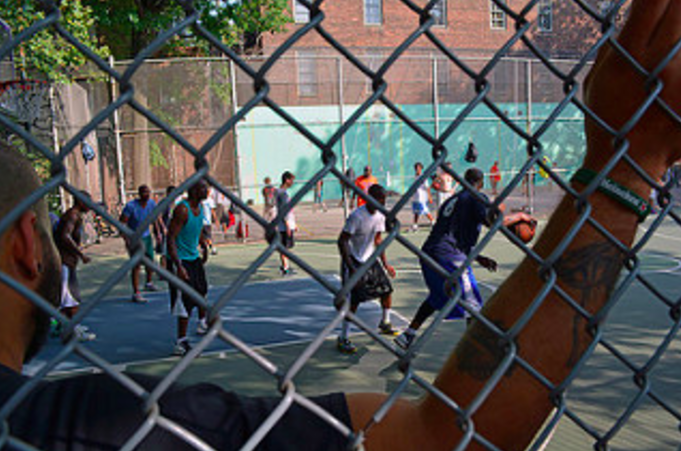after Philip Larkin
I feared these present years,
the mid-thirties,
when my receding hairline
became backed up
like rush-hour traffic on the Gulf Freeway,
& my man-boobs swelled
into Tig Ol’ Bitties. I wonder:
can Dr. Neil
deGrasse Tyson explain
the phenomenon of how
scrotum sacs start succumbing to gravity?
Each time I bend down,
it sounds like there are branches
breaking inside
of my knees—
a burden I wish
stemmed from long hours of shooting hoops
& stealing the rock
from flashy point guards
more in love
with the sound of their
own dribble than the sound
of their coach sliding “W’s” in the Win column.
I’m four years
shy of having a doctor
cram a microscope
in my chili con queso
to detect if any cauliflower-
shaped polyps have sprouted in my colon.
How real this shit be;
ritual, you’re tacky:
a neon sherbet orange
sweater handed down,
illuminating the fact
that I’m slowly turning towards decay.
I just want to live life
unencumbered by lower
back pain,
by overzealous
students insisting
my soothing bass will give Morgan Freeman’s baritone
a run for its money
when it comes
to narrating
the lives of geoducks,
tortoises, & tuataras:
animals that will outlive great-grandparents
but never the legacy
behind amazing
architecture shaped
like a lotus flower.
The body isn’t a temple; it’s built
to wither.
I choose to shrivel
up with grace
in autumn, falling
in slow motion
with brass leaves extending the muted sound
of a jazzy zephyr.
Jonathan Moody is the author of The Doomy Poems and Olympic Butter Gold, which won the Cave Canem Northwestern University Press Poetry Prize.




